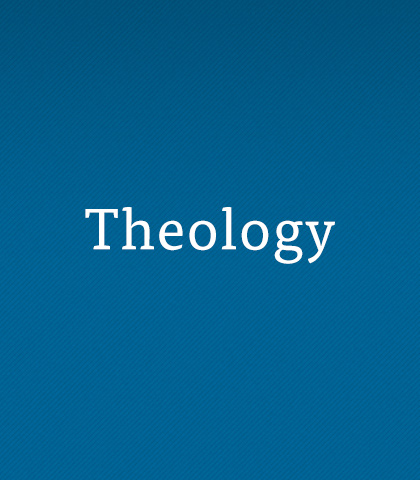Back to the Basics
In our fast-paced world it’s easy to lose touch with the basics of life. Basics like integrity, decency, honesty, and commitment. These are not character flaws!

What words come to mind when you hear the term theology? Dry…Dreary…Doubtful…DULL? You’re not alone.
Too often we don’t realize that theology—thinking about God—is an intimate part of our everyday lives, rather than something that takes place in ivory towers crowded with bearded men crouched over dusty books. We each engage in theology because we each have a set of beliefs about God. But rather than being content with our ideas about God as they now stand, we should each have a desire to know God better than we do today. If you’ve got that desire, then you’re ready to do theology!
Let these resources point the way to a faith more deeply connected with who God actually says He is.
In our fast-paced world it’s easy to lose touch with the basics of life. Basics like integrity, decency, honesty, and commitment. These are not character flaws!
Some things are worth waiting for. Do you struggle with God’s timing? Think of Ecclesiastes 3:11, “He has made everything beautiful in its time. He has also set eternity in the human heart; yet no one can fathom what God has done from beginning to end.” Trust that God knows what He’s doing and wait patiently for Him to act.
We live in a world that says there is neither right nor wrong, and only relative truth. To avoid being swept along by postmodernism you’ll need the discernment and direction found in the Bible.
A cross around a neck, an “ichthus” fish on the back of a car, a well-crafted sermon. None of these is the mark of a Christian—it is love. Like the old song says, “They will know we are Christians by our love.” Honest, transparent love.
Truth gives stability to your faith, strengthens you when you’re tested, enables you to handle the Bible accurately, equips you to detect and confront error, allows you to live with confidence, and releases you from all fears and superstitions. Truth sets you free.
We are incurably curious about the spiritual realm. Although our imaginations tend to overrun truth don’t ever doubt the presence of angels, for they are about us and above us. And, who knows, maybe even within one or two of us.
Some subjects are so profound not only can we not comprehend it, but also it becomes mind-boggling. It’s impossible for us to understand an existence beyond time and space. For us to comprehend the glories of heaven, God adjusts His truth to communicate with our simple, limited minds.
Pastor Chuck Swindoll teaches from Paul’s doxology in Romans 11:30–36.
Tune in to hear Pastor Chuck Swindoll discuss the need for faith and our responsibility to share the Gospel with others.
Examine Romans 9 with Pastor Chuck Swindoll to understand four great truths on predestination. Reflect on God’s sovereign choice and irresistible grace.